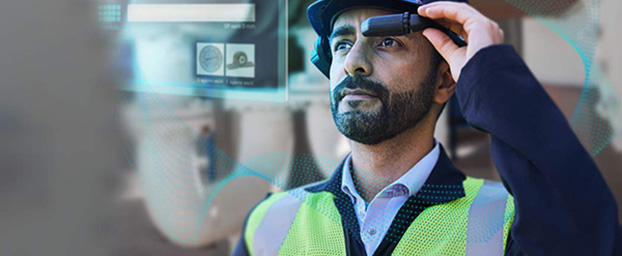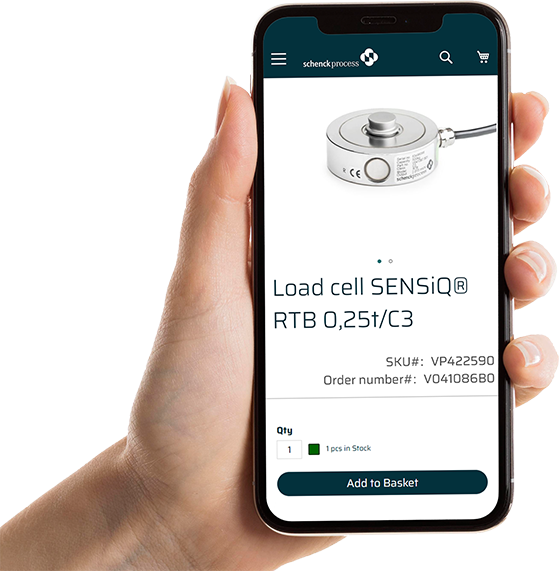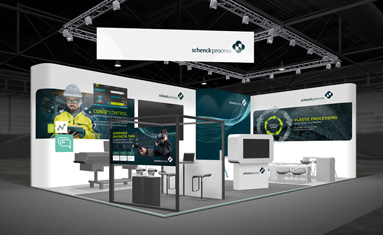For an efficient supply chain, the individual sub-processes on the plant site must mesh smoothly. One important process is yard management, which depends on good coordination. It is important not to lose sight of the many elements of the yard, such as trucks, bulk and general cargo, or conveyors. However, one employee alone is not capable of documenting and processing this wealth of information. The result can be errors that, in the worst case, affect the entire supply chain. But this is just one of the many challenges that have to be overcome in yard management.
What is yard management?
The classic logistics site is divided into two distinct areas: the dock and the yard. While goods are delivered and picked up in the dock, the yard is responsible for all processes in between. It is used for storage, sorting, and handling of incoming as well as outgoing deliveries. Typically, the yard is larger than the dock, and, depending on its size, various transport vehicles such as cranes or forklifts are also active there to move the goods. Operations include tasks such as check-in, weighing, separate loading, storage, and sorting of the various goods. This is where the greatest potential for optimization lies, especially for corporate sectors such as the cement, chemical, and steel industries, which work a lot with bulk goods. Depending on the solution used, it can cost a lot of time - or save a lot of time - to weigh piece goods and bulk materials. Traditionally, these processes are the task of the yard team. A modern alternative is using self-service terminals at which truck drivers can independently register for loading and unloading. The term yard management describes the organization, control, and monitoring of processes and is one of the most important components of yard logistics. The data collected in this way is essential for trouble-free goods handling, and well-coordinated yard management has decisive advantages for warehouse and personnel planning.

Challenges of conventional yard management
There are a number of challenges to be overcome in yard management. These are often due to a low level of automation and arise, for example, from manual handling of processes or a lack of transparency in coordination. However, everyday processes such as weighing piece goods and bulk materials can also be obstacles to unprepared yard management.
Insufficient real-time data
If there is no communication between the shipper, freight forwarder and consignee, there is a great deal of uncertainty about incoming vehicles or deliveries. For bulk goods in particular, it should be clear in advance how and with what aids they are to be loaded and stored. Poor communication leads to delays, inadequate planning, and possibly inefficient use of resources.


Errors in the planning process
If yard process planning is not carried out carefully, transparency and information quality suffer. This is particularly detrimental if the respective employee has to pass on data already recorded in other systems such as the warehouse management or transport management system. In this way, careless errors already in the planning stage can trigger delays or goods bottlenecks later in the process.
Spontaneous warehouse planning due to lack of coordination
When there is poor coordination between yard management and warehouse planning, warehouse managers are forced to make spontaneous decisions. As a result, available storage space is used inefficiently and potential space for additional goods is lost. In such cases general and bulk cargo can both block a lot of storage space. Efficient use of available space is therefore crucial to avoid bottlenecks and maintain the flow of goods.
On the other hand, well-controlled yard management, including advanced solutions such as self-service terminals (see info box), offers a wide range of benefits. First and foremost, it enables optimal organization of interrelated processes, as crucial information can be accessed at a glance. This enables the yard team to better monitor incoming vehicles and shipments, proactively plan storage locations and fully utilize all capacities. The same applies to personnel planning to prevent bottlenecks. Another advantage is the ability to react quickly should unexpected difficulties arise: With the help of real-time monitoring and communication, bottlenecks or delays can be identified as early as possible. Staff can respond and find alternative solutions in advance to keep operations running smoothly. In addition, this also reduces the duration of throughput and waiting times in time-consuming processes such as weighing bulk materials.
Different types of self-service terminals
Registration terminal
A registration terminal enables truck drivers to enter the required data simply via the touchscreen. Ideally, registration via QR code or identification card is already sufficient, as all relevant data is already stored in the system. Due to intuitive operation, this does not require any training, and every driver can easily log in, register, and use other functions.
Weighing terminal
Weighing terminals are responsible for controlling incoming and outgoing weighing operations. They control and manage the logical processes of weighing according to the type of transport, be it bulk, general cargo or special weighing for inbound and outbound deliveries of various materials.
Loading terminal
A loading terminal makes it possible to integrate the loading station into a shipping automation system. Advanced systems also use a contactless identification system (RFID or QR code) that allows the truck driver to operate the loading stations independently.
Overall, well-managed yard management optimizes overall logistics and supply chain performance by minimizing bottlenecks and cost. It also provides a comprehensive view of the entire yard area, significantly improving resource utilization and coordination between parties. To benefit from these advantages, it is particularly recommended for companies in the cement, chemical or steel industries to rely on intelligent yard management software for their loading terminals and weighing equipment.
Solution: yard management software
Due to the abundance of data, manual handling of yard management is not an effective solution. Employees are highly loaded at peak times, which can lead to errors. This makes reliable advance planning difficult. To overcome these challenges, specialized software is required that automates most of the information gathering and exchange processes between shippers, carriers and consignees. If the shipper chooses reliable yard management logistic solution, it offers him a number of advantages for his yard processes:
· Less stressed employees can focus on critical tasks
· All information is available at a glance
· Storage aids for piece goods and bulk materials can be provided at an early stage
· Clear interfaces significantly accelerate the familiarization process for new employees
· Planning with comprehensive data minimizes turnaround times
· Optimal personnel deployment reduces labor costs
· Advanced technology speeds up time-consuming processes such as weighing bulk materials
· Accurate monitoring of goods movements protects against fraud
· Allocation of waiting areas reduces active traffic on the site
Choosing the right software solution for yard management
When choosing the appropriate software, there are different factors to consider that impact yard performance. It is true that some of the common solutions meet the above-mentioned requirements. But special yard management logistic solutions convinces with decisive functions that further relieve the shipper in his work. It also depends on the individual requirements of the company's industry: For cement, chemical and steel companies, for example, the handling of bulk goods is a decisive time factor. As a result, self-service terminals become a particularly advantageous feature, as they automate all processes from the weighing process to the removal of papers. The basic data protection regulation must be observed in particular to ensure that sensitive data is not disclosed to third parties. Scanner and printer connections for capturing and processing the essential delivery documents are also advantageous. To prevent language barriers, the software should support several languages.
A good example of this zero-touch logistics is LOGIQ: As a data protection-compliant system, it offers intuitive, predefined and compliant self-service for registration, weighing and loading terminals (see info box) that supports multiple languages. The system works using an authorization card that distinguishes between regular and one-time visitors. For more flexibility, the program can also be integrated with other systems such as different terminals, software modules or hardware. For example, delivery drivers simply register using a QR code and enter additional data into the intuitive interface if required in a particular case. The yard team is relieved and can devote itself to active handling of the goods. On the other hand, this reduces waiting times for the carriers, who are back on the road more quickly.
LOGIQ: self-service terminals
LOGIQ registration, loading and weighing terminals allow drivers and cargo to be identified using RFID cards or QR code scanners indoors or outdoors. In addition, they have an intercom system that enables communication with operations personnel in the plant or control room.
All terminals have Ethernet connectivity and I/O contacts. Optionally, they can be supplemented with laser printers, receipt printers, intercom stations and various operating elements. The LOGIQ components are modular, even in conjunction with products from other manufacturers. The data collected is processed by the system in accordance with the General Data Protection Regulation (GDPR) and all applicable precautions, so that confidentiality is maintained at all times.
Conclusion: simplifying yard management
In summary, yard management is an indispensable part of yard logistics, but it involves a large number of time-consuming processes. Specialized logistic solutions such as LOGIQ are a decisive factor in simplifying and optimizing these. They facilitate cooperation between all parties involved and automate important communication processes. This enables shippers, transport service providers and consignees to work together more effectively. At the same time, software of this kind enables more efficient planning, organization and control of the yard by recording and processing the goods information in its entirety and passing it on to the basic IT system (e.g. ERP). Consequently, bottlenecks or errors do not fall under the radar and can be identified and corrected at an early stage. With self-service terminals, LOGIQ reduces the time required and thus ensures increased performance at the plant site. The specialized logistics solution can be fully customized to meet the needs of each customer, who no longer needs additional programs for yard management.
Overall, yard management is a complex task that can be significantly optimized through the use of specialized logistic solutions. In this context, a well-designed and modern zero-touch logistics solution determines the smooth running of yard logistics and can meet the high demands of today's logistical challenges. Automated processes, coordinated collaboration and reduced manual effort increase efficiency, thus reducing costs and achieving a rapid ROI.
We’re there for you
Partnership for us means always being on hand to support you whenever and wherever you need us. With our global network of locations and expert partners, we make sure we are always right by your side.






